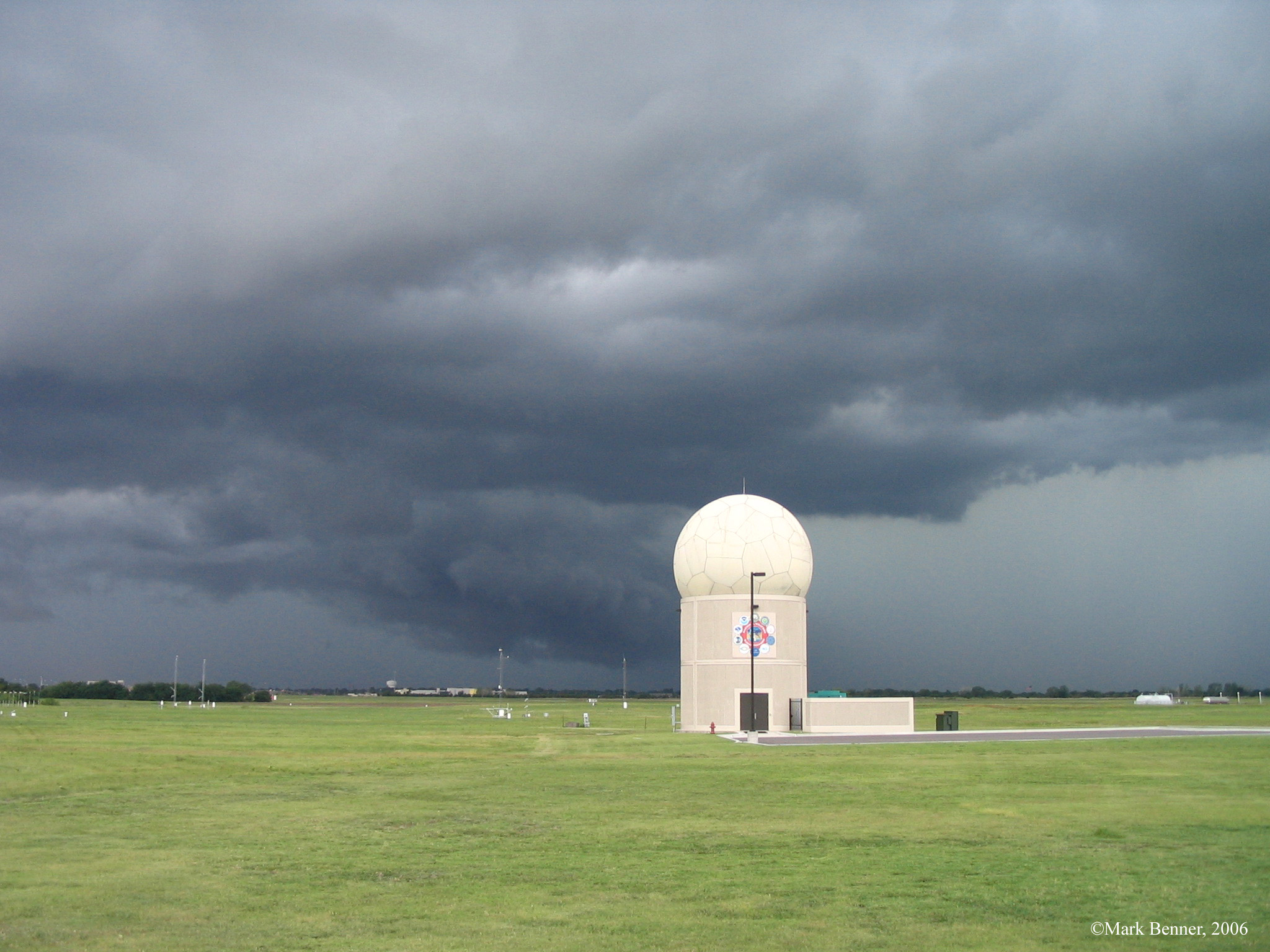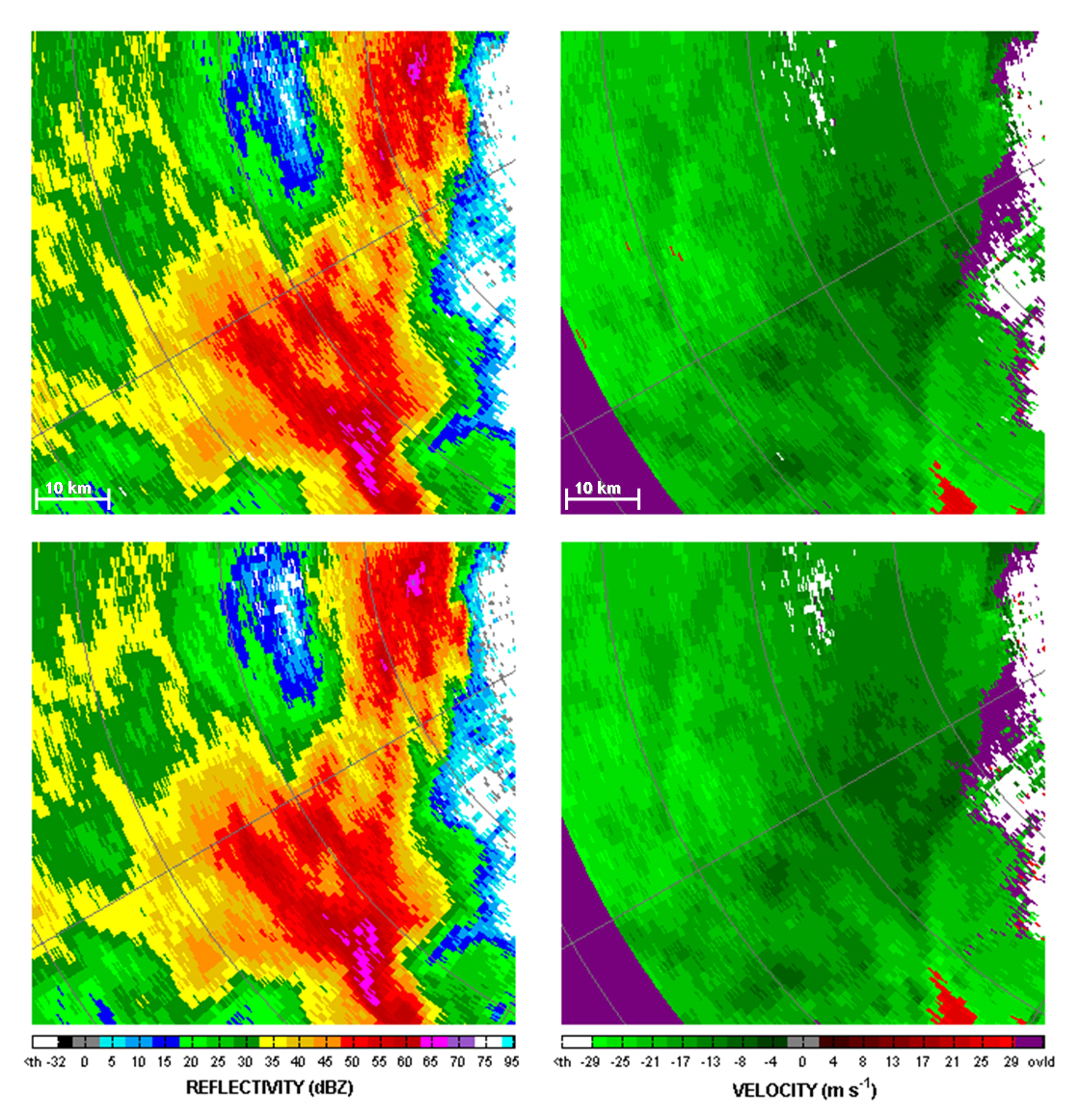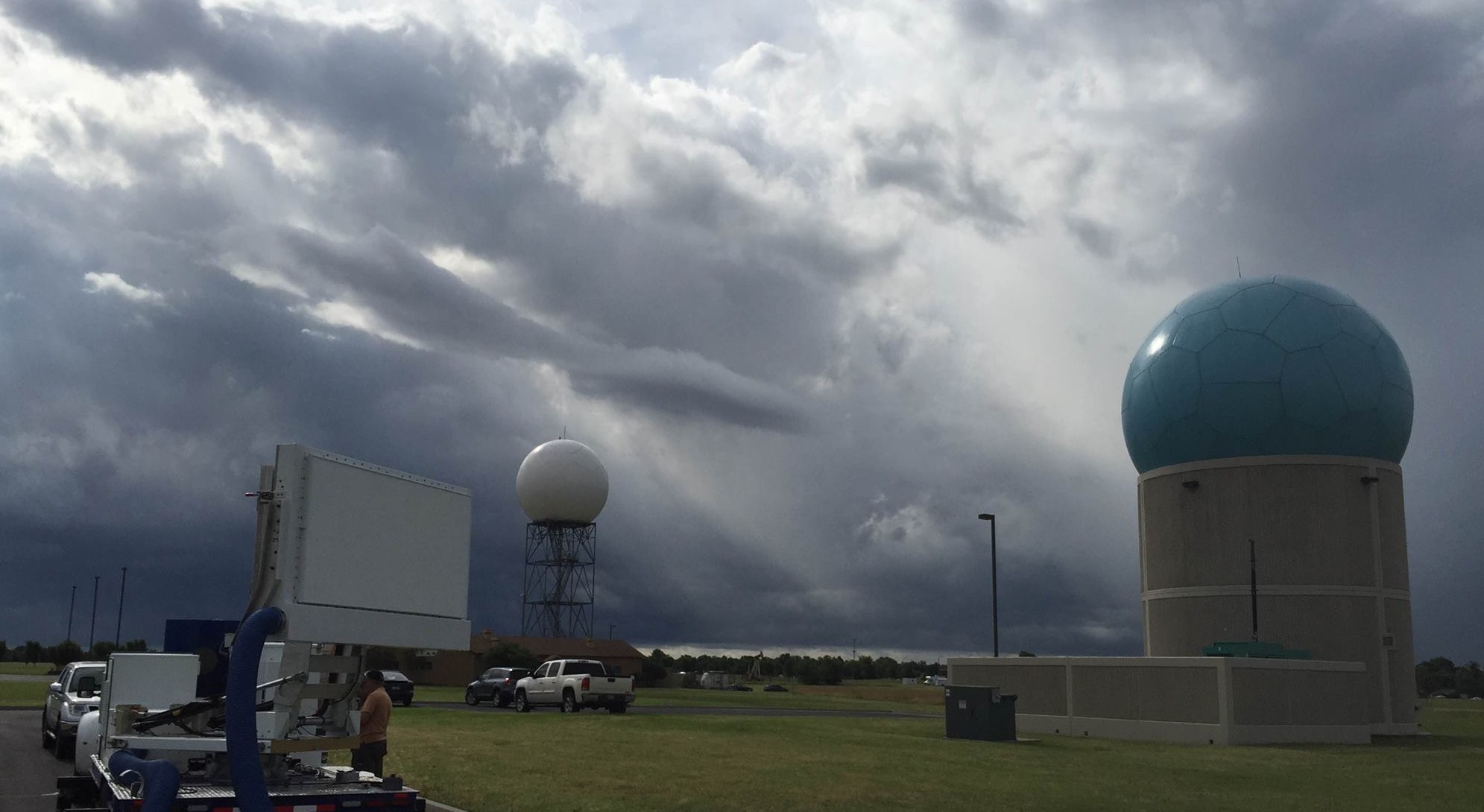NSSL scientists have begun the 2011 Phased Array Innovative Sensing Experiment (PARISE). PARISE runs from May 2-June 19.
During PARISE, teams of NSSL scientists will operate the National Weather Radar Testbed Multi-function Phased Array Radar (MPAR) for a week at a time to demonstrate, test and evaluate advancements in scanning techniques.
Their goal is to minimize the amount of time MPAR takes to scan a storm without losing data quality. Faster scans will reveal critical weather thumbprints that point to the potential of severe weather.
NSSL scientists developed a technique allowing MPAR to electronically adapt its scanning strategies according to different weather conditions. This technique has been shown to reduce scanning update times by as much as 30 percent.
Additional scanning update times can be reduced with a range oversampling technique, also developed by NSSL scientists. Range oversampling cuts radar update times in half while increasing the accuracy of the data.
These two techniques will be run and tested together to find out how much faster MPAR is able to provide updates, depending on storm coverage and location relative to the NWRT MPAR.
Since 2007, NSSL has held an annual demonstration of new capabilities developed for the National Weather Radar Testbed Phased Array Radar. These spring data collection periods are part of the Phased Array Radar Innovative Sensing Experiment (PARISE). During PARISE, NSSL scientists and National Weather Service forecasters evaluate the potential of rapid-scan multi-function phased array radar (MPAR) data to help improve severe weather warnings. Results positively impact phased array research and development to addressing 21st century weather forecast and warning needs.
Find more information: Phased Array Radar :: National Weather Radar Testbed



